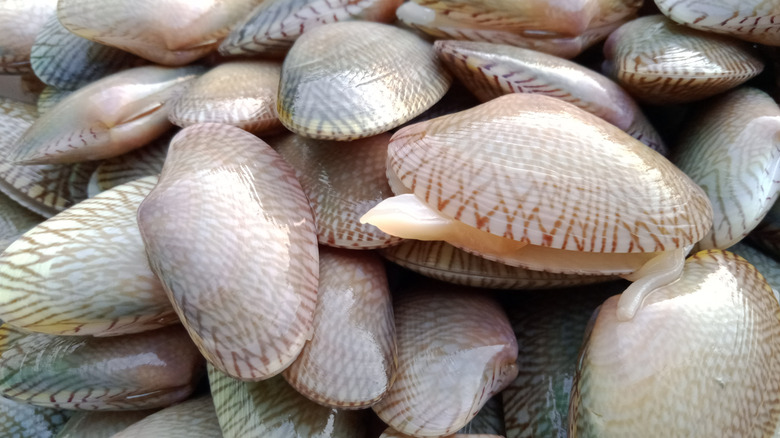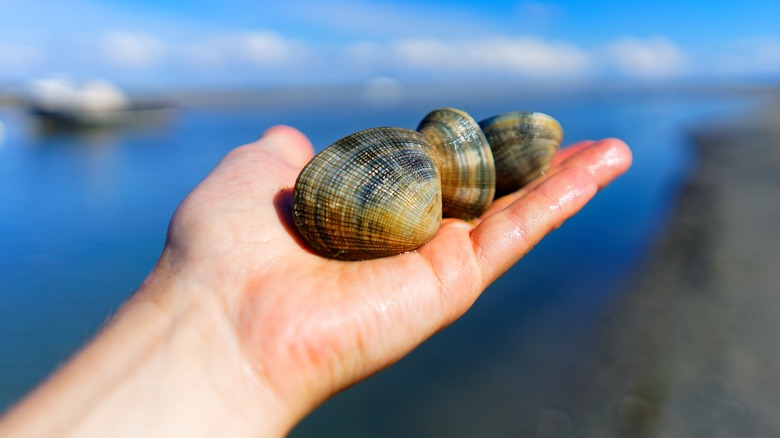Where The Phrase Happy As A Clam Came From
Some people just have a friendly, happy sort of aura about them. They're quick to make a joke, relentlessly upbeat, and seem to have a resilience to the drudgery of the modern world that many of us could only wish to have. Such people are often described as being "happy as a clam."
As Britannica reports, a true clam is reportedly characterized by its '"foot" (with which it propels itself) and its two-part shell — which this curious aquatic creature can shut by means of two muscles. What makes them particularly happy? Britannica states that they are usually found in more shallow water, and it's this tendency that seems to be at the root of the phrase.
Per Mental Floss, the shallow water that clams typically live in has left them vulnerable to being harvested for a variety of seafood dishes. This, however, became a much more difficult task when the water levels rose. The phrase is reportedly a shortened version of one that became particularly common in the northeastern U.S. in the 1800s: "Happy as a clam at high tide."
Clams are apparently happiest -- and safest -- at high tide
This extended version of the term, Phrases states, appeared in the "Dictionary Of Americanisms — A Glossary Of Words And Phrases Usually Regarded As Peculiar To The United States." In this 1848 book, author John Russell Bartlett stated (via Phrases) that, by the time of publication, it was "a very common expression in those parts of the coast of New England where clams are found."
Another potential contributing factor would be the two-part shell of the claim itself. Fans of Disney's "The Little Mermaid" will be familiar with the notion of a clam seeming to "speak," or gleefully clap itself like castanets, by rapidly opening and closing its shell. Phrases adds that many may take their "happy" appearance itself to be where the phrase came from, though it seems unlikely.
Today, the expression is generally used in a slightly different context. Those who are as happy as a clam are not relieved to be out of danger, rather in a particularly good mood. In a way, then, the generally accepted origin of the term has given way to the "grinning clam" association that presumably emerged later. "Each little clam here know how to jam here," as Sebastian sang in "Under The Sea" while merry clams clacked to the beat.

